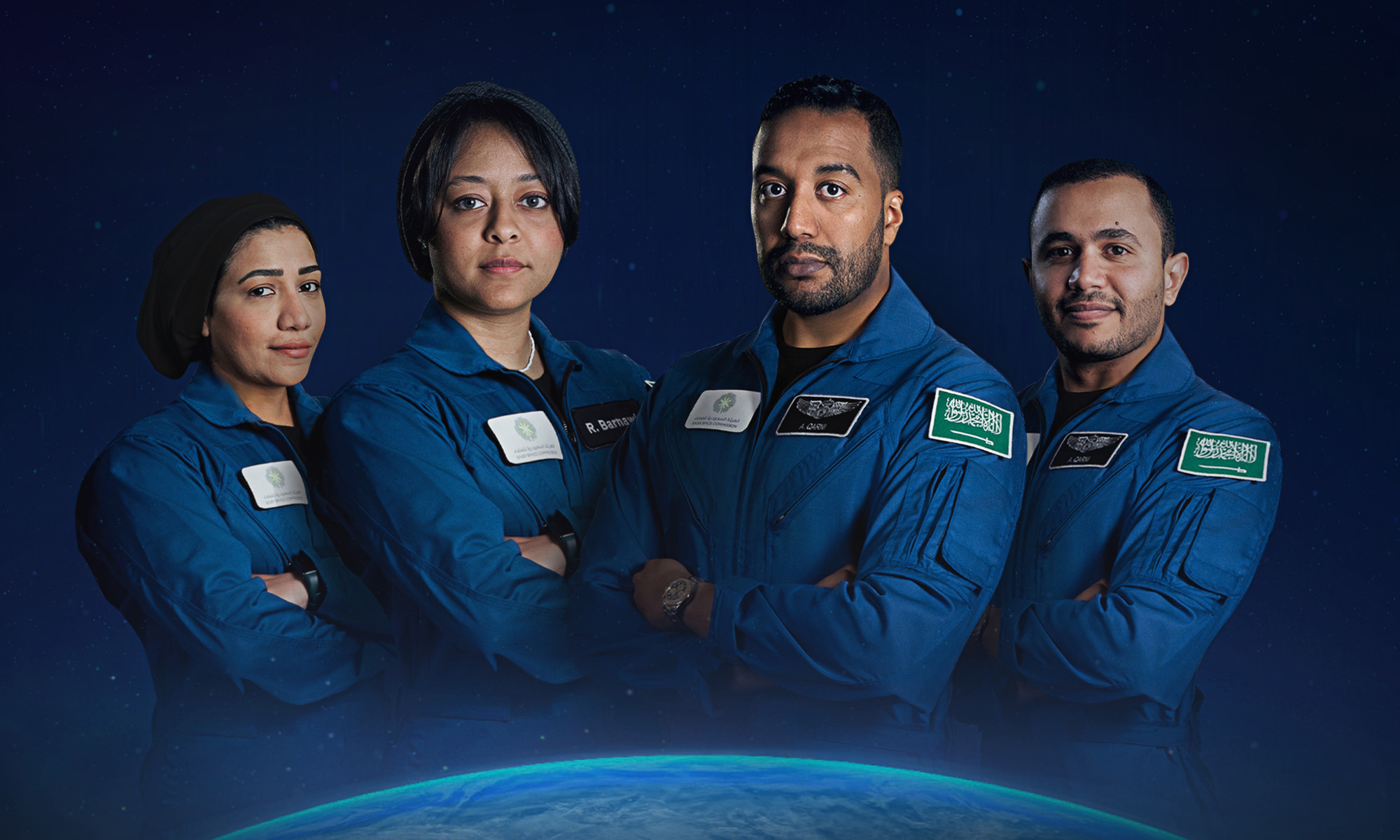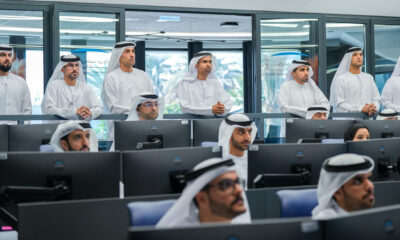News
First Female Saudi Astronaut To Join International Space Station
Saudi Arabia will send a male and female astronaut to the ISS in Q2 of 2023.

Saudi Arabia has officially announced that it will send the first female Saudi astronaut to the International Space Station in Q2 2023 as part of a two-person team. The mission follows in the footsteps of the neighbouring United Arab Emirates which became the first Arab nation to send a citizen into space, back in 2019.
Rayyanah Barnawi and teammate Ali AlQarni will join the crew of the AX-2 space mission in a historic flight that will launch from the USA. Meanwhile, the Saudi Human Spaceflight Program will commence the training of two further astronauts, Mariam Fardous and Ali AlGamdi, for the mission.
The Kingdom of Saudi Arabia hopes the mission will bolster human spaceflight capabilities and help the country benefit from the opportunities provided by being an active participant in the space industry. An official statement explained that the flight would be “contributing to scientific research that serves the interests of humans in essential fields such as health, sustainability, and space technology.”
Also Read: A First Glimpse Of Dubai’s Air Taxis Flying Past Local Landmarks
As well as boosting research and development in space-based innovation, The Saudi Human Spaceflight Program will also aid new graduates in the fields of science, technology, engineering, and mathematics (STEM). According to the Saudi Space Commission, the mission to the ISS will make the country one of only a handful to simultaneously bring two astronauts of the same nationality to the International Space Station.
The Spaceflight Program contributes to Saudi Arabia’s Vision 2030, a unique transformative economic and social reform blueprint. The AX-2 mission will help to further the country’s plans for the future and enable Saudi innovation to take center stage in the global, connected economy.
News
Rabbit Expands Hyperlocal Delivery Service In Saudi Arabia
The e-commerce startup is aiming to tap into the Kingdom’s underdeveloped e-grocery sector with a tech-first, locally rooted strategy.

Rabbit, an Egyptian-born hyperlocal e-commerce startup, is expanding into the Saudi Arabian market, setting its sights on delivering 20 million items across major cities by 2026.
The company, founded in 2021, is already operational in the Kingdom, with its regional headquarters now open in Riyadh and an established network of strategically located fulfillment centers — commonly known as “dark stores” — across the capital.
The timing is strategic: Saudi Arabia’s online grocery transactions currently sit at 1.3%, notably behind the UAE (5.3%) and the United States (4.8%). With the Kingdom’s food and grocery market estimated at $60 billion, even a modest increase in online adoption could create a multi-billion-dollar opportunity.
Rabbit also sees a clear alignment between its business goals and Saudi Arabia’s Vision 2030, which aims to boost retail sector innovation, support small and medium-sized enterprises, attract foreign investment, and develop a robust digital economy.
The company’s e-commerce model is based on speed and efficiency. Delivery of anything from groceries and snacks to cosmetics and household staples is promised in 20 minutes or less, facilitated by a tightly optimized logistics system — a crucial component in a sector where profit margins and delivery expectations are razor-thin.
Despite the challenges, Rabbit has already found its stride in Egypt. In just over three years, the app has been used by 1.4 million customers to deliver more than 40 million items. Revenue has surged, growing more than eightfold in the past two years alone.
Also Read: Top E-Commerce Websites In The Middle East In 2025
CEO and Co-Founder Ahmad Yousry commented: “We are delighted to announce Rabbit’s expansion into the Kingdom. We pride ourselves on being a hyperlocal company, bringing our bleeding-edge tech and experience to transform the grocery shopping experience for Saudi households, and delivering the best products – especially local favorites, in just 20 minutes”.
The company’s growth strategy avoids the pitfalls of over-reliance on aggressive discounting. Instead, Rabbit leans on operational efficiency, customer retention, and smart scaling. The approach is paying off, having already attracted major investment from the likes of Lorax Capital Partners, Global Ventures, Raed Ventures, and Beltone Venture Capital, alongside earlier investors such as Global Founders Capital, Goodwater Capital, and Hub71.
























